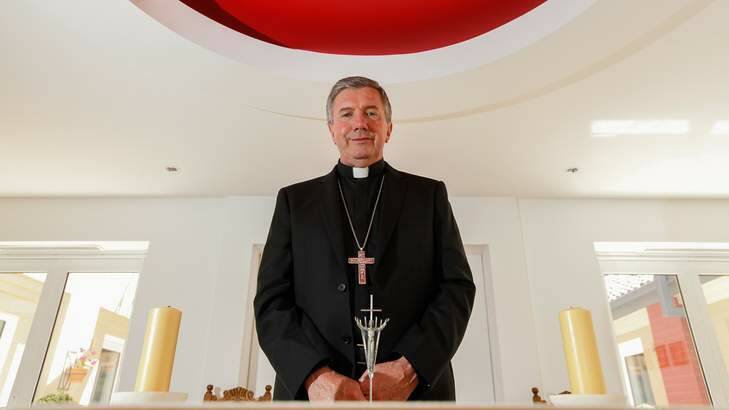Visiting local jails in the lead up to Christmas will be high on Christopher Prowse's agenda as he begins work as the seventh archbishop of the Catholic Archdiocese of Canberra and Goulburn.
Subscribe now for unlimited access.
or signup to continue reading
Bishop Prowse will formally take on his new role during a ceremony at St Christopher's Cathedral on Tuesday morning.

The liturgical reception and mass will be attended by more than 30 bishops, other church and community representatives and federal and local politicians.
The former Bishop of Sale moved into his new residence next to Lake Burley Griffin at the end of last week.
In a break between meetings and and attending a rehearsal for the ceremony, Bishop Prowse said he wanted to try and serve the entire local community, not just Catholics.
He was particularly keen to visit prisoners and see first-hand the work charities were doing during the Christmas season.
"I want to reach out to the periphery and the margins; particularly to the people who are struggling,'' he said.
In his homily on Tuesday, Bishop Prowse will draw upon the biblical account of Jesus telling St Peter to take his boat into deep water to fish. In the same way, he said, the church needed to head into new waters.
''It's a very exciting mission for the church today, in contrast to a simple circling of the wagons and a
siege mentality,'' Bishop Prowse
said.
''The exact opposite response is needed. But not one that imposes, but proposes. When we start to impose we alienate.
''When we … propose we excite and give hope. I think Pope Francis is doing that.''
Bishop Prowse said he would spend the next few months asking what the local church was doing well, what it could do better and what advice people had for him.
Christians needed to reach out to the majority of Australians who believed in God but rarely, or never, attended church, he said.
"A diminishing number are actually coming to churches … We believe in God but we're not too sure of affiliation with church.''
Bishop Prowse said he was concerned that social media was having am unanticipated "secularising affect'' on some people that could harm families.
"It can make them very individualistic,'' he said. "And, [sometimes] it can make people have an exaggerated autonomy in the way they live out their lives and feel that really family is something extrinsic or something that you go through but you grow out of.''

